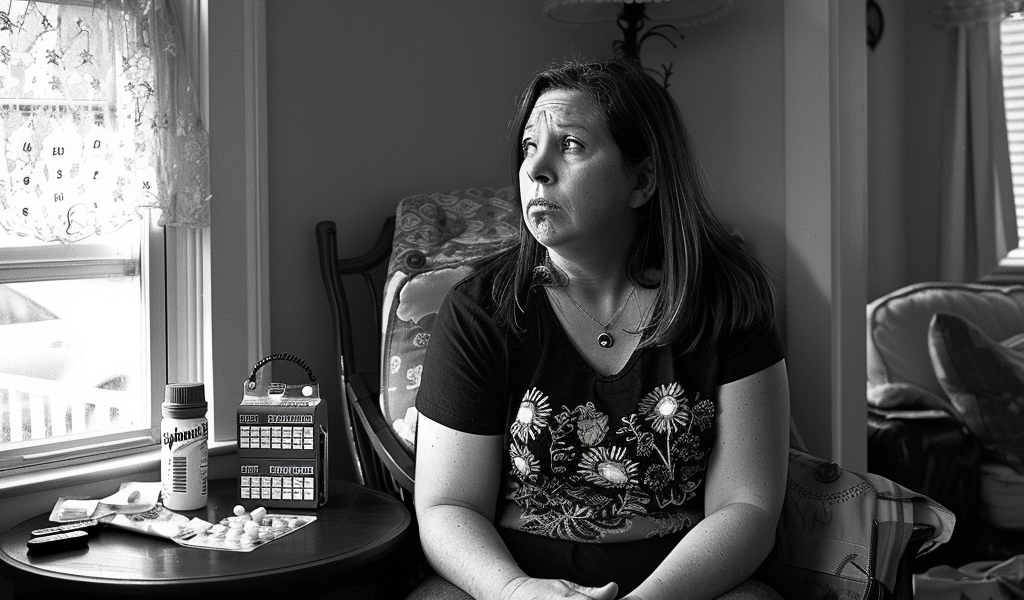As the landscape of healthcare continues to evolve, the implications for individuals grappling with opioid addiction are becoming increasingly pronounced, particularly in light of recent changes to Medicaid. For many, like a Florida resident identified only as Stephanie, the struggle to maintain access to essential treatment has intensified amid the state’s efforts to reassess Medicaid eligibility.
Stephanie, who relocated from Indiana to Florida, faced significant challenges in accessing methadone treatment—a critical component in her recovery journey. The nearest clinic was nearly an hour’s drive away, and without the ability to drive herself, the logistical hurdles were daunting. However, her qualification for Medicaid provided a crucial lifeline, covering the costs associated with her methadone treatment, which had been instrumental in managing her opioid cravings and preventing withdrawal symptoms.
For nearly a decade, methadone has been a cornerstone of Stephanie’s stability, allowing her to maintain employment and care for her young children. “I just want to have a normal life,” she expressed, highlighting the everyday challenges faced by those in recovery. Unfortunately, her stability was rocked when she discovered during a routine clinic visit in summer 2023 that she had been removed from the Medicaid rolls. This was part of a broader initiative as the state worked to re-evaluate the eligibility of its enrollees after the federal COVID-19 pandemic protections expired in March 2023.
With her Medicaid coverage revoked, Stephanie was suddenly faced with the prospect of paying out-of-pocket for her methadone, an expense that was far beyond her financial means. The anxiety of potentially losing access to her medication triggered fears of severe withdrawal symptoms, which could include vomiting, fever, cramps, joint pain, and tremors. “That’s the first thing I thought,” she recalled, “I’m going to be so sick. How am I going to get up and take care of the kids?”
The situation is dire, as more than 25 million Americans, including approximately 1.9 million Floridians, have lost their Medicaid coverage since the unwinding of the pandemic-related protections. This demographic includes many individuals undergoing treatment for opioid addiction, for whom the loss of coverage can have catastrophic consequences.
Research underscores the critical importance of continuous access to medication for those battling opioid use disorder. Studies have shown that when taken as prescribed, medications like methadone and buprenorphine can significantly reduce the incidence of dangerous drug use and lower overdose fatalities by more than 50%. Conversely, interruptions in treatment are associated with increased risks of overdose and death, creating a precarious situation for those affected.
While exact figures on how many individuals with opioid addiction have lost their Medicaid coverage during this unwinding process remain unclear, estimates from KFF, a health information nonprofit, suggest that over 1 million low-income Americans rely on Medicaid for essential addiction care. For many, the stakes could not be higher.
At Operation PAR, a nonprofit addiction treatment provider, the challenges faced by clients like Stephanie are echoed across the board. The organization has been at the forefront of providing support and treatment to individuals battling addiction. As the Medicaid disenrollment continues, the implications for treatment access are becoming increasingly concerning, particularly for those who are already vulnerable.
In light of these developments, it is crucial for policymakers and healthcare providers to recognize the urgent need for sustained support for individuals in recovery. The intersection of healthcare policy and addiction treatment is a complex landscape, but the need for comprehensive care remains paramount.
As communities grapple with the fallout from Medicaid cuts, the experiences of individuals like Stephanie serve as a poignant reminder of the critical intersection between health policy and public health. The ongoing challenges faced by those with opioid use disorder highlight the importance of advocacy and support systems that can help bridge the gaps created by policy changes.
The urgency of the situation calls for a collective response from healthcare providers, policymakers, and communities to ensure that those in need of treatment for opioid addiction can access the care they require without interruption. As the landscape continues to shift, the focus must remain on the individuals who rely on these essential services for their recovery and well-being.





